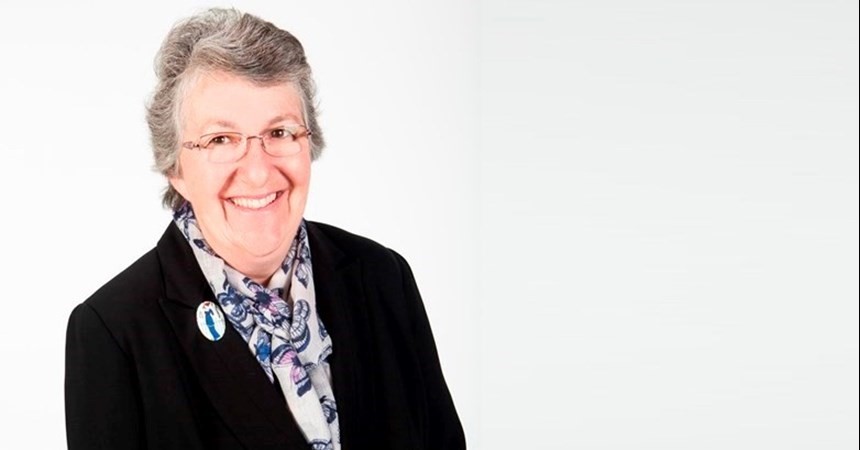Lord, when was it that we saw you hungry and gave you food, or thirsty and gave you something to drink? And when was it that we saw you a stranger and welcomed you, or naked and gave you clothing? And when was it that we saw you sick or in prison and visited you? (Matthew 25:37-39)
During the week, several people attended the Salvation Army Worship and Community Centre at Hamilton for one of our Faith Forum initiatives. Captains Linley and Stephen Oliver lead the community at Hamilton and they, along with some members of their community, made us feel very welcome. It was a powerful witness for me to see both of them share leadership of a group of ‘Christ’s soldiers’. As their website states:
Lynley and Stephen have a heart for the local church to be a transformative influence for Jesus in the community, as well as for discipling people to go deeper in their spiritual lives.
As part of their site at Hamilton (Cleary Street) they run The Olive Branch Café which provides young people with the opportunity to develop hands-on work skills through participating in the operation of a functioning busy café. The café is open Monday to Friday from 9am to 2.30pm. The program provides training and hands-on experience from skilled chefs and offers it students a Certificate III in Hospitality. Those who are dealing with anger, depression and homelessness are referred to the program through school, job agencies and other support agencies. I hope some of you might consider going there for a meal or coffee.
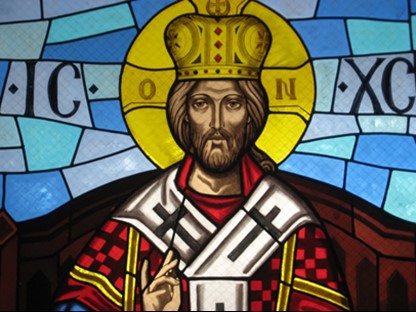 At their Sunday service, which we were invited to attend, Stephen broke open the first reading from the prophet Ezekiel (34:11-12, 15-17) from the Sunday Lectionary for Christ the King. Ezekiel provides the image of God as a shepherd the one who takes care of his flock. This is our image of Christ the King – “I myself will pasture them.”
At their Sunday service, which we were invited to attend, Stephen broke open the first reading from the prophet Ezekiel (34:11-12, 15-17) from the Sunday Lectionary for Christ the King. Ezekiel provides the image of God as a shepherd the one who takes care of his flock. This is our image of Christ the King – “I myself will pasture them.”
The Christ King is not one who rules over or who uses power to dominate God’s creation, but the one who tends to the lost, the poor, and those whose needs are great. This is what it means for us to be missionary disciples.
At the Diocesan Pastoral Council meeting on Saturday in the Upper Hunter Region, Leo Walsh provided input on the New Evangelisation, a term introduced by Pope John Paul II. Leo, made the decision to take up these studies as a response to realising that, as a member of the Parish Finance Council, how very little was being spent on mission - with most of the parish finances allocated to maintenance. This term, New Evangelisation, requires us to be prophetic in responding to the new challenges in the contemporary world. This call for us to evangelise is for:
- those who have not heard the Gospel message
- those living out the faith but needing a deeper conversion
- those who once received the Gospel, but have grown lukewarm or cold and may have abandoned the faith.
I am sure we know people who fit into one of these categories – or even recognise ourselves described here. As Pope John Paul II notes in Redemptoris Missio
The time has come to commit all of the Church’s energies to the New Evangelisation. No believer in Christ, no institution of the Church can avoid this supreme duty: to proclaim Christ to all peoples. (n33)
To be or become a missionary disciple, or as the Salvation Army names it, a soldier for Christ, one must have a personal encounter with Jesus Christ. The following quotes formed part of Leo’s presentation:
The Christian faith is not simply teachings, wise sayings, a code of morality or a tradition. The Christian faith is a true encounter and relationship with Jesus Christ. Transmitting the faith means to create in every place and time the conditions which lead to this encounter between the person and Jesus Christ. The goal of all evangelization is to create the possibility for this encounter, which is, at one and the same time, intimate, personal, public and communal. (The Synod of Bishops - New Evangelisation for the Transmission of the Faith, p. 18. 2012)
Every Christian is a missionary to the extent that he or she has encountered the love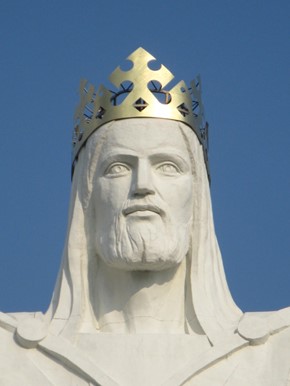 of God in Christ Jesus: we no longer say that we are “disciples” and “missionaries, “but rather that we are always “missionary disciples.” (EG 120)
of God in Christ Jesus: we no longer say that we are “disciples” and “missionaries, “but rather that we are always “missionary disciples.” (EG 120)
I dream of a ‘missionary option’, that is, a missionary impulse capable of transforming everything… (EG 27)
This input formed the basis of some group conversations which then became action steps for the diocese, for the Upper Hunter Region and for the local parishes. The major outcome, which I note in this message, was the recognition that St Joseph’s High School in Aberdeen is a critical hub for the local Catholic community. It is from this hub that people will see a need, examine that need in the light of the gospels (judge) and then act upon that need, with the full recognition that they are doing so because it is a Jesus imperative. Catholicity is more than an institution; it is a movement which invites all to serve.
I will now share with you a story that was shared with me as part of the day:
Last year a very young student from Muswellbrook High School took his own life. The staff from St Joseph’s Aberdeen visited the school with morning tea so the staff could take time with each other. And last week, St Joseph’s School at Merriwa, suffered the loss of one of its mums. Once again the staff from St Joseph’s Aberdeen provided the staff at this school with morning tea while also providing playground duty - this so the primary school staff could spend time with each other in the process of grieving, support and care.
What a wonderful example of leading in the see, judge and act process of being Catholic (Christian).
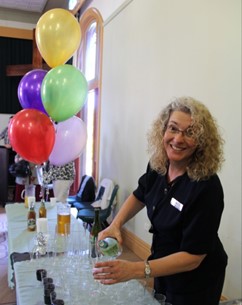 My weekend pilgrimage began on the Friday evening with the diocesan ‘Liturgy Party’ celebrating the good liturgical things happening in our parishes. Then, on Saturday morning, it continued with the drive to Aberdeen followed by our DPC meeting. Not only did the school provide the space for our meeting but they also generously provided a beautiful morning tea and lunch. One of the casual staff and a student gave of their time to prepare the food and to serve us. As I have shared with you previously, it is always good to go to the Upper Hunter. I feel welcomed and appreciated because of their natural hospitality – ‘for I was a stranger and you welcomed me, thirsty and you gave me a drink, hungry and you fed me’.
My weekend pilgrimage began on the Friday evening with the diocesan ‘Liturgy Party’ celebrating the good liturgical things happening in our parishes. Then, on Saturday morning, it continued with the drive to Aberdeen followed by our DPC meeting. Not only did the school provide the space for our meeting but they also generously provided a beautiful morning tea and lunch. One of the casual staff and a student gave of their time to prepare the food and to serve us. As I have shared with you previously, it is always good to go to the Upper Hunter. I feel welcomed and appreciated because of their natural hospitality – ‘for I was a stranger and you welcomed me, thirsty and you gave me a drink, hungry and you fed me’.
I then attended the Vigil Mass at our Cathedral, followed by worship on Sunday with the Salvation Army community. This was followed on Sunday evening with the celebration of Festal Evensong at our Cathedral with the community from Christ Church Cathedral, because the V8 Supercar race prevented them from having access to their own cathedral. It was a great way to finish the weekend pilgrimage of conversations, prayer, scripture, songs and music.
I have a real sense of finishing the Liturgical Year with this weekend pilgrimage. Next week, we begin once again a new liturgical cycle with Advent. I hope you are able to notice the last stages of the jacaranda flowers and the beginning of the advent colour of the agapanthus.
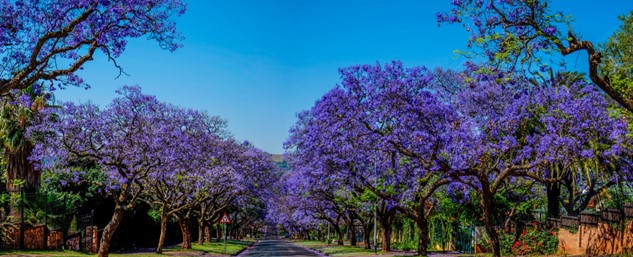
I finish this message with a reflection for prayer and action:
Our search for God and our service to others will never be conducted in a neat world. Life will never submit to our good intentions, will never fall in line, will never stand still long enough to do our bidding.
Life will never cease to be a messy affair, and our spiritual journey will never be reduced to a tidying-up operation. God and the others don’t wait to enter our life until we have put it all in order. Our journey … is about finding God and serving others in the midst of the mess. The messiest place of all will be our own soul, our own life, which, despite our best efforts, will insist on remaining human. And it is into this 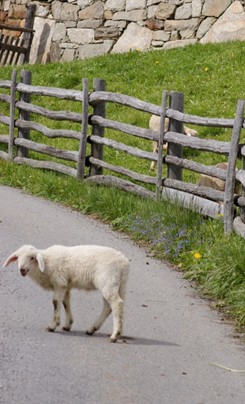 mess, this confusion, that God and others will invite themselves. (John Kirvan ‘Silent Hope’)
mess, this confusion, that God and others will invite themselves. (John Kirvan ‘Silent Hope’)
Don’t forget to practise being a shepherd during the week.
By the way, upon arriving at St Joseph’s Aberdeen, I was met by a very large sheep, called Chuckles, who had escaped the fenced area and was being chased by one of the staff, so as to be returned to safety, behind the fenced area for their sheep. He was not too keen to be put back behind the fence.
This was indeed a clear sign for my weekend pilgrimage!!
